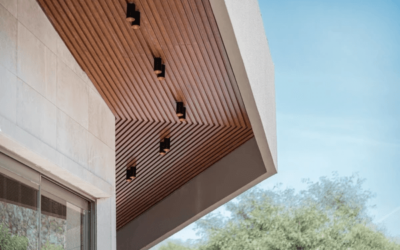The Importance of Selecting the Right Doors
When designing or renovating your home, choosing the right doors is a crucial decision that affects not only the visual appeal of your space but also the functionality it provides. A door is more than just an entry or exit point; it is a vital component that reflects your personal style, ensures privacy and security, and contributes to energy efficiency within your home.
Impact on Aesthetic Appeal and Elegance
Doors play a pivotal role in defining the overall style of your home. Choosing the right material can add a touch of elegance and sophistication. For instance, wooden doors offer a warm, natural charm, while aluminum doors provide a sleek, modern look with easier maintenance.
Privacy and Security
Privacy and security are top priorities when selecting home doors. Different materials offer varying levels of protection. Solid wood doors, for example, tend to provide greater security and privacy compared to some other alternatives.
Energy Efficiency
The right door choice can also enhance your home’s energy efficiency. Materials that provide excellent insulation, such as certain types of wood or insulated aluminum, help maintain the desired indoor temperature and reduce energy consumption.
Choosing the right door is not merely about aesthetics—it’s an investment in your home’s security and comfort. It’s essential to consider all the factors mentioned above to make an informed decision that meets your needs and preferences.
Advantages and Disadvantages of Aluminum Doors
Aluminum doors offer a modern and practical option for many homes and commercial buildings. They come with several advantages, making them a popular choice, but also have some downsides that might lead some to prefer other options.
Durability and Maintenance
One of the most significant advantages of aluminum doors is their ability to withstand harsh weather conditions without being affected. This makes them an excellent choice for regions with extreme weather. They do not rust or rot like other materials, reducing maintenance needs and making them a cost-effective option in the long run. However, aluminum doors may require periodic cleaning to maintain their appearance.
Thermal and Acoustic Insulation
While aluminum is not the best material for thermal insulation, many modern aluminum doors are equipped with thermal insulation systems to improve their energy efficiency. However, in some cases, they may still be less effective than wooden doors in terms of insulation. As for sound insulation, additional measures may be needed to improve this aspect if noise is a concern.
Design and Aesthetic Appeal
Aluminum doors offer great flexibility in terms of design and color options, making them adaptable to various tastes and architectural styles. Whether you’re looking for a contemporary or classic look, aluminum doors can meet your needs. However, in certain instances, they may not provide the same warmth and depth that wood offers, which is why some individuals prefer wooden doors for aesthetic reasons.
Advantages and Disadvantages of Wooden Doors
The Benefits of Wooden Doors
Wooden doors offer several advantages that make them a favored choice for many. They provide a classic, warm appearance that is difficult to replicate. Wood is highly versatile in design, allowing for intricate carving and customization to match any architectural style. Additionally, wood is known for its strong sound and thermal insulation properties, making it ideal for creating a comfortable interior environment.
Potential Drawbacks of Wooden Doors
Despite the many benefits, wooden doors have some drawbacks that may cause some to reconsider their choice. The primary concern is their susceptibility to damage from environmental factors such as moisture, water, and pests, requiring regular maintenance to preserve their quality and appearance. Furthermore, wooden doors tend to be more expensive than alternatives like aluminum, particularly when opting for high-quality wood or custom designs.
How to Choose Between Wood and Its Alternatives
When faced with the decision of selecting the type of door, several factors should be considered, including aesthetic design, performance, overall cost, and the level of maintenance required. Wooden doors offer unparalleled beauty and can add significant value to your home from an interior design perspective. However, this must be balanced with the consideration of ongoing maintenance and higher costs compared to other alternatives. Materials like aluminum may be more suitable for areas with extreme weather changes or for those seeking a lower-cost and low-maintenance option.
Factors to Consider When Choosing Between Aluminum and Wood
When deciding whether to use aluminum or wood for your doors, several key factors should guide your decision-making process to ensure you make an informed choice.
Durability and Maintenance
Aluminum is known for its resistance to environmental factors like moisture and weather changes, making it a long-lasting option that requires minimal maintenance. On the other hand, wood needs regular care to protect it from damage caused by moisture and pests.
Aesthetics and Design
Wood offers a warm, natural look that cannot be replicated, making it ideal for traditional and luxurious designs. Aluminum, with its versatility, provides a more modern look and can be adapted to a wide range of architectural styles.
Cost and Thermal Performance
Aluminum doors may initially cost more than wooden ones, but the low maintenance and long lifespan can make them a more economical choice in the long run. In terms of thermal performance, wooden doors offer superior natural insulation, while aluminum may require additional treatment to improve its thermal properties.
Tips for Making the Right Decision: How to Choose Between Aluminum and Wood
When choosing the best material for your home’s doors, consider the following aspects to help you make a well-informed decision:
Assess Aesthetic Appeal
Both aluminum and wood have unique aesthetic qualities that can enhance the look of your home. Wooden doors provide a natural warmth and charm, perfect for classic or rustic designs. In contrast, aluminum offers a modern, sleek appearance that suits contemporary buildings with a wide variety of design options.
Consider Maintenance and Cost
Take into account the maintenance and cost associated with each option. Wooden doors require regular upkeep to protect them from external elements like moisture and pests, which may lead to additional long-term costs. Aluminum, resistant to rust and corrosion, requires less maintenance and may prove to be more cost-effective in the long run.
Evaluate Performance and Durability
It’s essential to consider performance and durability when selecting door materials. Wood, despite its natural beauty, can warp or swell over time due to exposure to moisture or humidity. Aluminum, however, offers high durability and can withstand various weather conditions without losing its quality or appearance, making it an excellent option for regions with harsh climates.
By evaluating these aspects, you can make a more informed decision about whether aluminum or wood is the best choice for your home doors, based on your unique needs and priorities.


